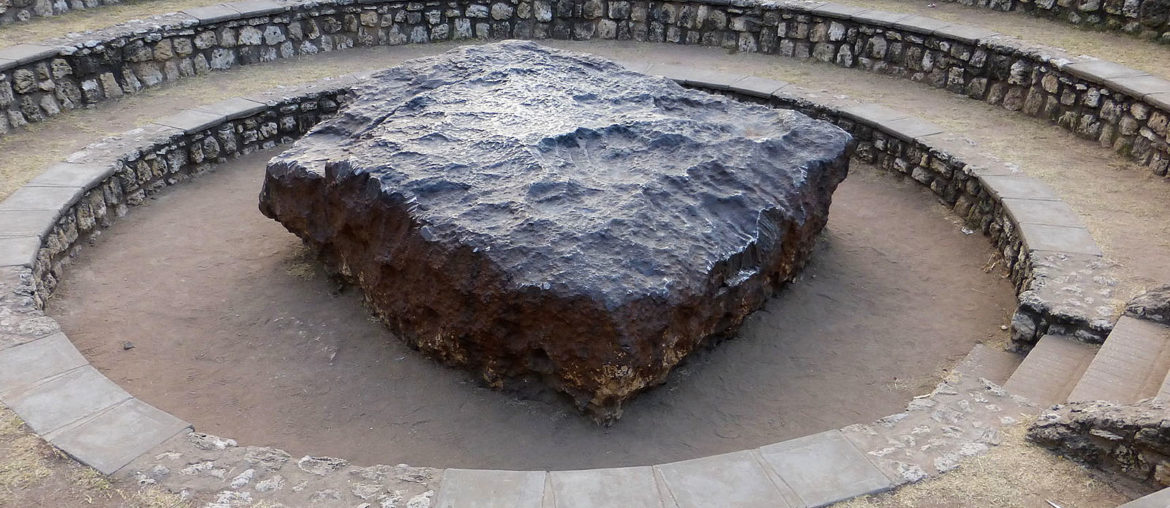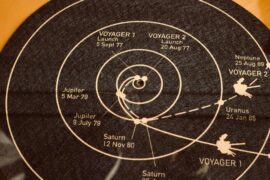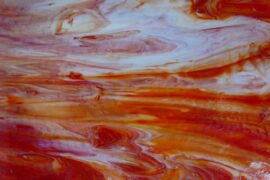Meteorites have always been objects of wonder for us humans. Big chunks of rock that fall from space at incredible speeds, burn bright on the way down and can make some damage if they land anywhere near populated areas. Meteorites have stricken fear and curiosity into the hearts of men from the beginning of time.
These rocks can also hold clues about the secrets of the universe, making them invaluable for scientific research. By studying meteorites astronomers can learn things like the age of the Solar System, the composition of planets, and even how life started on Earth.
As if that wasn’t enough, they can also contain precious metals and other materials that are scarce, or even nonexistent on Earth. For example, just in 2011, scientists discovered a new mineral on the meteorite Yamato 691 discovered during an expedition to Antartica by Japanese scientists. They named it Wassonite, and as far as we know, this mineral isn’t found anywhere on Earth.
Meteorite rocks are few. They cannot be manufactured. Our only path to getting them is literally to wait until they fall to us from the sky and hope they are not too big and don’t cause damage. So, with them being so valued, it is natural to wonder who owns them when they fall. Are they government property? Do finders keepers apply? Is it even legal to own one? Let’s answer that one first.
Is it legal to own a meteorite?
Yes. It is completely legal to own a meteorite, at least in the United States. Different countries have set different rules. Later in the article, we will examine the property rules for them in other places but we will examine the U.S. legal framework first.
There are some caveats for meteorite ownership though. While it is legal to own, buy and sell meteorite pieces first we have to answer who do they belong to when they first fall.
Who owns a meteorite that just fell?
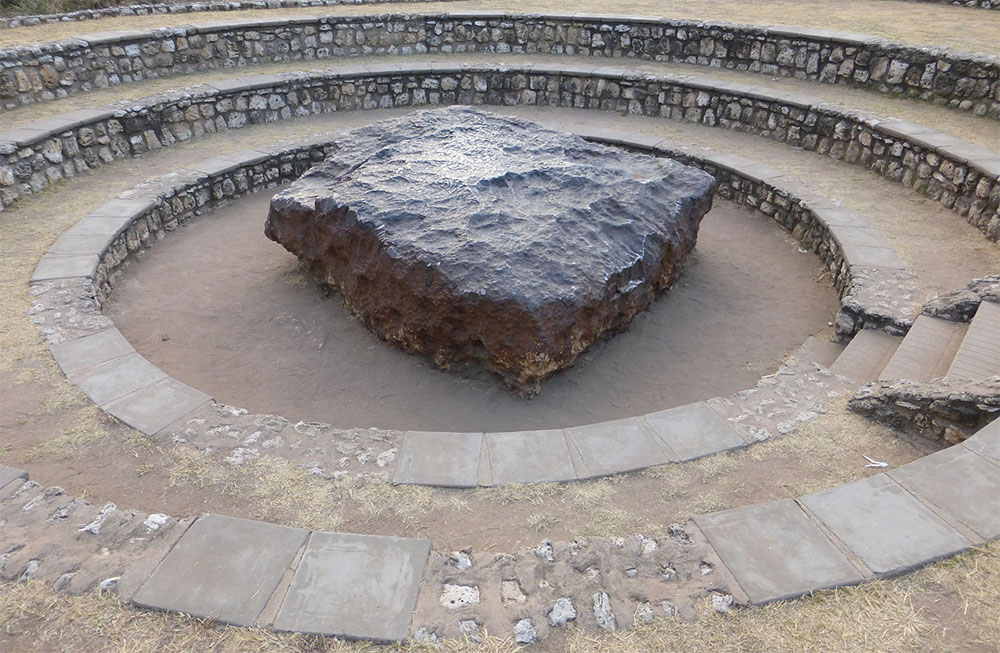
The standard land ownership rules apply for meteorites. The owner of the land where the meteorite falls becomes its legal owner.
If the meteorite lands on public ground (federal property), then 3 different situations can happen depending on the use you want to give to the found rocks. The details are covered extensively in the Instruction Memorandum 2012-182 of the Bureau of Land Management but it can be summarized as follows:
Casual Collection – Individuals are free to collect “what can easily be hand-carried”, up to a maximum of ten pounds per year per person. This is for individual use only and you are not allowed to sell them.
Scientific Use – Scientific and educational institutions are welcome to solicit the meteorites under the Antiquities Act. They will need to apply for a permit with the local office of the BLM and the rocks should only be used for research purposes.
Commercial Collection – Companies and individuals looking to sell the rocks or give them commercial uses can apply for a permit to collect the material through a land use permit issued by the BLM. They will also be required to pay a fee equivalent to a percentage of the market value of the material they intend to collect. They also need to comply with local environmental regulations.
The BLM has an extensive FAQ with additional details.
Laws in other countries
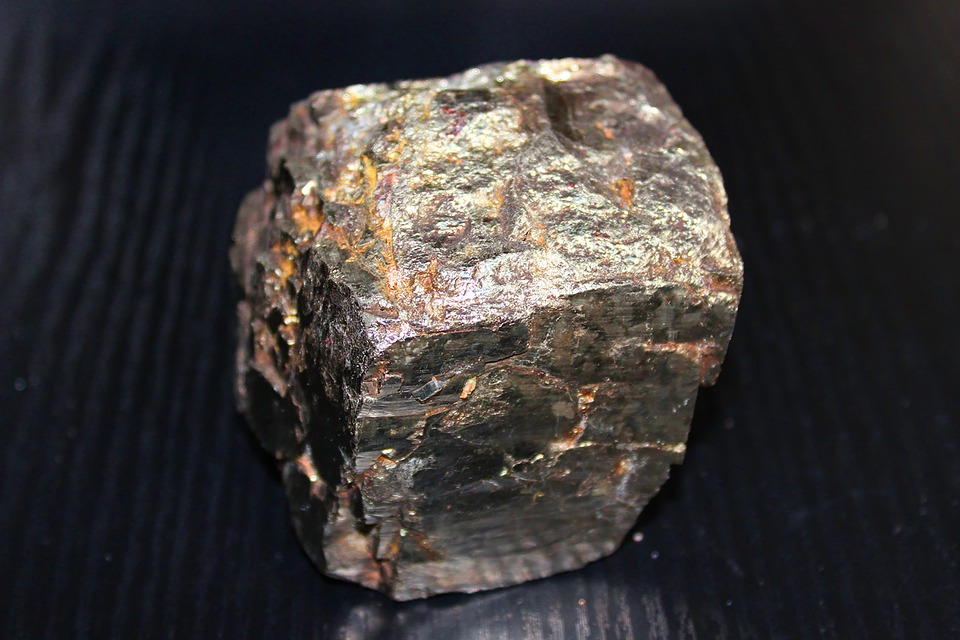
Different countries have different laws when it comes to meteorite ownership. Some places where meteorites are more common due to Earth’s tilt like Argentina and Russia have made the laws very clear while countries, where it is not that common, might not even have a set of rules for the situation.
Argentina
In most provinces (states) land ownership applies. However, in the Chaco province, they had to apply a special ban to protect them. The place now called Campo del Cielo (Sky Field) was hit by a bunch of meteorites about 5,000 years ago. The multiple craters occupy an area of about 18 kilometers and a lot of meteorite pieces have been found in there. In 1990 the government declared them provincial property and applied a fee. A lot of the genuine meteorite pieces that can be found online for cheap are actually from this area.
Canada
Found meteorites are the property of the land’s owner. They can be sold freely, however, they can’t be exported without a permit. Additionally, a six-month waiting period can be set for exports during which local institutions and museums can purchase it at market value.
Denmark/Greenland
In Denmark, they are declared property of the state and must be given to a museum. The finder can get a finder’s fee depending on the market value. As part of the Danish realm, the same rules apply for Greenland and the Faroe Islands.
Japan
Property of the land’s owner. Otherwise, the finder can assert ownership.
Mexico
In Mexico, meteorites and “aerolites, minerals, and objects of mixed nature with origin in outer space” are the property of the country. But, if you were to import them from somewhere else, that is legal.
United Kingdom
Property of the land’s owner. The only exception would be if the meteorite would somehow be declared a “treasure trove” in which case it would be property of the crown, but no such claim for one has ever happened. I’d be curious to see what would happen if a big meteorite with a core of gold was ever found.
India
All finds must be surrendered to the Government Geological Museum.
Antarctica
The case of Antarctic meteorites is unique as no government or individual can make a claim over land under the Antarctic Treaty. The treaty encourages scientific cooperation and the use of any findings for research purposes. The law, in this case, is not very relevant anyway because due to conditions in Antarctica, retrieving a meteorite from there is way too expensive for anyone but the few institutes and agencies that have other research goals over there.
How do I know a meteorite is legit?
Most meteorites don’t look very different from other rocks or metals so it is hard to confirm their origin if you are not an expert. While there is no standard or official agency that proves the legitimacy of findings, there are some entities like the International Meteorite Collectors Association that try to keep track of pieces and make sure they are legit. If a seller claims to be a member of the IMCA, you can go check out with them to make sure they are registered with them.
That’s great! where can I buy a meteorite then?
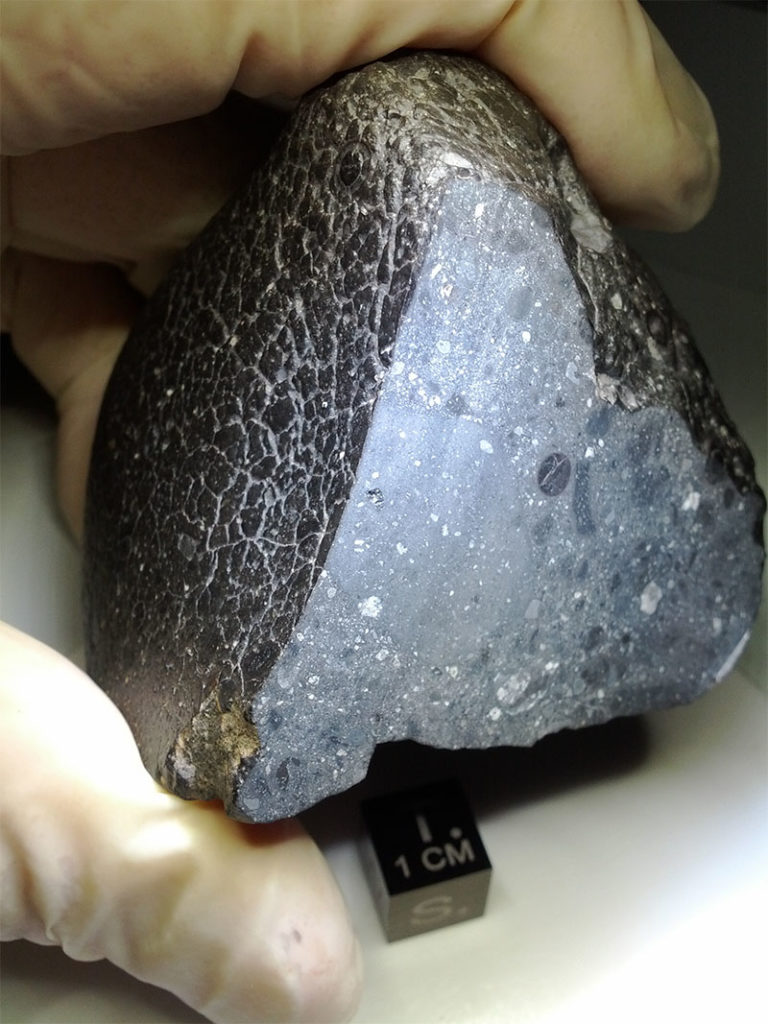
There are multiple sites, marketplaces, and sellers that are willing to sell you a piece of space rocks. It really depends on what you are looking for.
If you just want to own a small sample, meteorites made of iron, stone and other common metals are quite common. You can even get them on the usual places like eBay or even order them on Amazon.
Big, complete rocks that weight between 1 pound and 100 pounds can be found on specialized marketplaces and stores. They’ll sometimes go for hundreds or even thousands of dollars.
Meteorites that contain very rare materials or have some sort of scientific relevance are mostly sold directly to researchers, museums, and universities to study. It’s the kind of thing where you would have to “know a guy” to get your hands on one of those. The ones that are sold to the public can be found on fancy auction houses in New York or Paris.
For example, in July 2011 a big meteorite fell on Morocco. Astronomers quickly realized it came from Mars which made it super interesting as we don’t have many pieces of Martian material on Earth. Every collector and scientist from all around the world wanted a piece of it so the prices skyrocketed. One gram of that meteorite (about 0.002 pounds) can be worth somewhere between $500 and $1,000. That is 10 to 20 times the price of gold. About 11 Kilograms (24 pounds) of material has been recovered from that impact. Even today, nomads in Morocco are still looking for more pieces and hoping to get rich.
Enjoyed this article?
Get daily 10-minute PDFs about astronomy to read before bed!
Sign up for our upcoming micro-learning service where you will learn something new about space and beyond every day while winding down.

